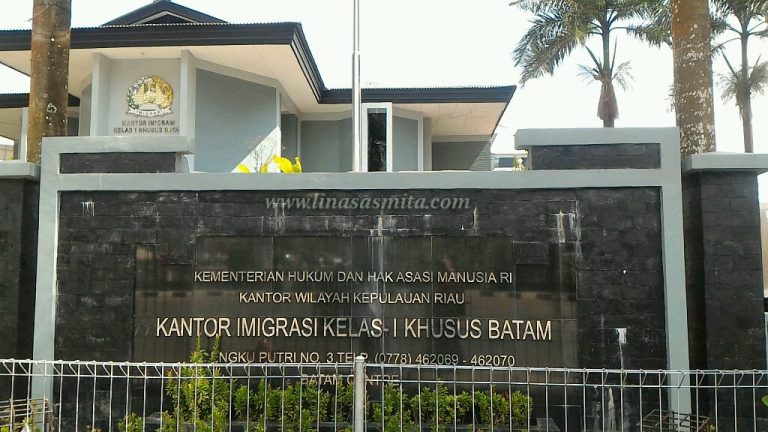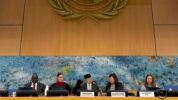Efforts to Combat Human Trafficking: Batam Immigration Blocks 767 Suspected Migrants
BATAM, RAKYAT NEWS – In a significant move to combat human trafficking, Batam Immigration has delayed the departure of 767 individuals suspected of attempting to leave Indonesia as illegal migrant workers (PMI or TKI) in November 2024.
This action is part of the government’s ongoing efforts to strengthen the prevention of human trafficking and protect vulnerable citizens from exploitation. The operation, conducted by the Immigration Office at Batam, a key port city in the Riau Archipelago, aims to crack down on illegal labor trafficking networks.
Hajar Aswad, the head of Batam Immigration, confirmed that the delayed departures occurred at both the international port and airport. The agency’s vigilant monitoring at these entry and exit points forms a critical part of Indonesia’s strategy to curb human trafficking. “We have prevented the departure of 767 individuals, and in addition, we have rejected or postponed 12 passport applications in November alone,” Hajar said, highlighting the growing concern over illegal labor migration.
The decision to delay these departures follows a thorough review process aimed at identifying potential victims of human trafficking or individuals attempting to leave the country under false pretenses. Hajar emphasized that this initiative is essential to safeguard Indonesian citizens from becoming victims of exploitative work conditions abroad. “This is a form of protection for the public,” he stated.
Most of the individuals involved in this case were reportedly from East Nusa Tenggara (NTT) and various provinces on the island of Java. These areas are known to have a high number of people seeking overseas employment, making them vulnerable to trafficking networks. Hajar stressed the importance of preventing these individuals from falling into illegal labor channels that often lead to severe exploitation.
Indonesia’s commitment to preventing human trafficking is part of a broader, national initiative to address the growing problem. According to the Indonesian National Police’s Criminal Investigation Department (Bareskrim), human trafficking cases have become a significant concern, with certain regions, including Batam, emerging as key points for both transit and departure for illegal migrant workers.
As part of the continued efforts to combat human trafficking, the Batam Immigration Office works closely with national and international law enforcement agencies. “We regularly monitor international crossings and passport issuance as part of our ongoing efforts to prevent human trafficking,” Hajar added. The government has been actively pursuing more stringent checks to ensure that migrant workers are employed legally and not subjected to unsafe or exploitative working conditions.
The Indonesian authorities’ concerns about human trafficking are shared globally. The head of Bareskrim, Police Commissioner General Wahyu Widada, recently pointed out that human trafficking is not just a domestic issue but a global concern. He noted that three regional police forces, including the Kepulauan Riau Police, have uncovered a significant number of human trafficking cases, further highlighting the scale of the problem.
In the past month, the Kepulauan Riau Police have become one of the top law enforcement agencies in tackling human trafficking, contributing to a national effort to curb these transnational crimes. Wahyu stated that human trafficking is often part of organized crime networks that exploit victims for forced labor or other forms of exploitation, such as sex trafficking. This serious issue requires coordinated action both domestically and internationally.
As Indonesia continues to grapple with the challenge of human trafficking, authorities are enhancing their preventive measures and ensuring that victims are offered protection rather than being exploited. Batam Immigration’s proactive stance in delaying the departures of suspected illegal migrant workers is a clear example of the country’s commitment to protecting its citizens and upholding its responsibility in the global fight against human trafficking.(Uki Ruknuddin)



























Tinggalkan Balasan